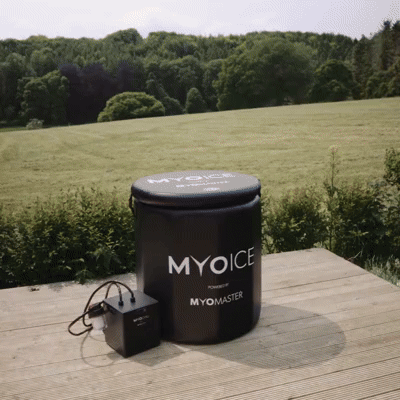Testosterone increases muscle protein synthesis.
Enhancing the mechanism of muscle protein synthesis is probably the most important benefit of testosterone when it comes to athletic recovery. The more we break our muscles down during training and competition, the greater the need for muscle protein. There have been many studies on this over the years but there are a couple key ones to take note of.
Published back in 2003 in the Journal of Clinical Endocrinology & Metabolism a study entitled ‘Testosterone dose-dependently increases maximal voluntary strength and leg power, but does not affect fatigability or specific tension’ lead by Thomas Storer took 61 males aged between 18 and 35 years old and split them into 5 groups. Each group was given a dose of either 25, 50, 125, 300, or 600 mg testosterone enanthate for 20 weeks.
The improvements in leg strength and muscle size over the 20 week period had a direct correlation with the amount of testosterone given to the test subject. Thomas Storer went on to do more studies on the effects of testosterone, demonstrating the correlation in skeletal muscle tissue as well as highlighting the benefits of increased testosterone in older men.
In women, the same results are seen in studies such as ‘Effects of moderately increased testosterone concentration on physical performance in young women: a double blind, randomised, placebo controlled study’ that took 48 women aged between 18 and 35 and gave them various doses of testosterone. Again, the more testosterone the greater the ability for muscle protein synthesis.
Total testosterone does not equal free testosterone.
Approximately 98% of the testosterone the body produces is bound to either sex-hormone binding globulin (SHBG), or albumin. This is referred to as “bound testosterone.” The 2% that’s left is known as “free testosterone.”
Having a high total testosterone does not necessarily mean you will get the benefits of having free testosterone available for protein muscle synthesis, there is a strong correlation between the two but it is a balancing act between other factors in the body.
It’s also worth noting that if you’re training really really hard, your body will be exhausting its reserves of testosterone causing a lower overall total testosterone count. So you can look in great shape and compete at a high level but still have a lower than average total testosterone count.
How to naturally raise free testosterone.
Naturally raising free testosterone can improve athletic performance significantly. Here’s a few tried and tested methods to improve testosterone levels in both men and women.
Improved sleep - better sleep has been proven to increase testosterone levels, with the peak of testosterone production happening during the first REM cycle. It’s important to note that testosterone production happens during sleep regardless of whether it’s at night or during the day. Showing that naps can be an effective tool to improve afternoon or evening workouts.
Increase the amounts of healthy fats you eat - healthy fats found in foods like avocados and egg yolks are essential for hormone production, in fact studies show that low fat diets are directly correlated with low testosterone levels.
Increase Vitamin D intake - this one is key during the winter months as we lose sunlight. Vitamin D actually functions as a hormone and is essential for regulating the body's natural testosterone levels. A study of over 4000 participants found vitamin D deficiency directly linked with low testosterone levels. Consider getting on a Vit D3 supplement throughout the winter to counter the lack of this essential vitamin.







